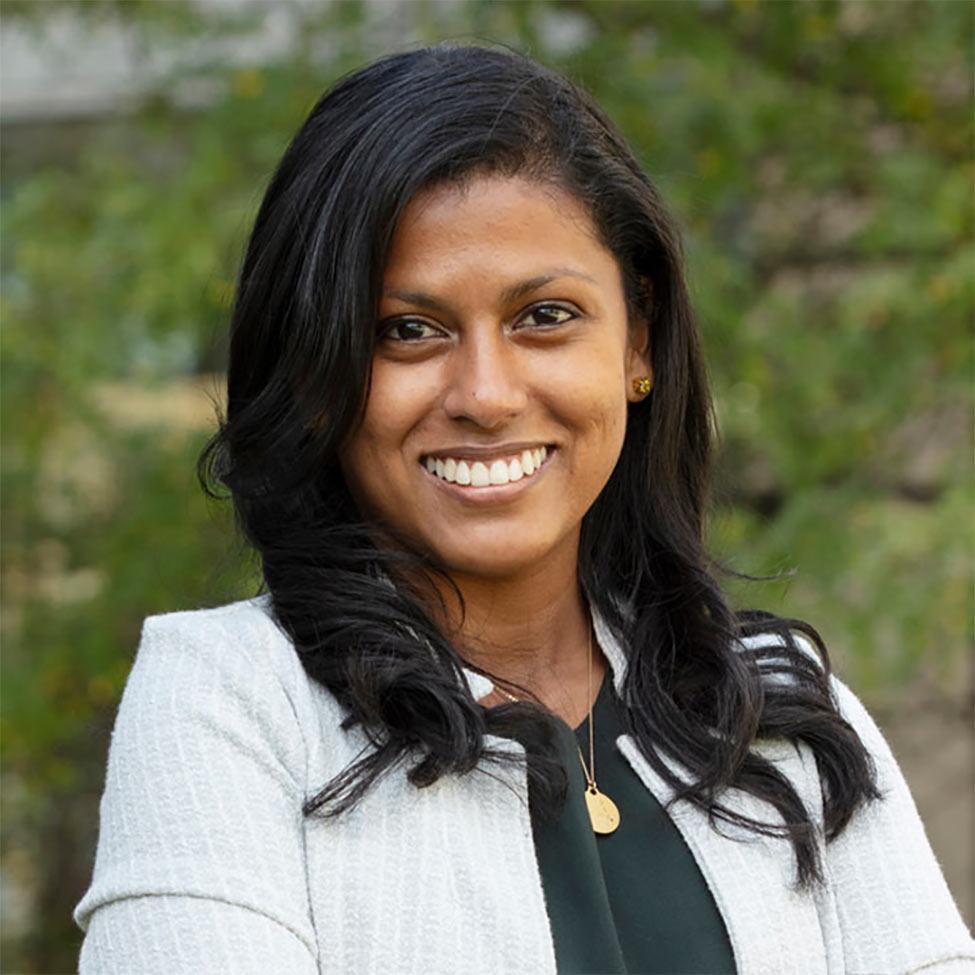
Psychic Leads Hit-And-Run Victim's Son, Chicago Police To Case-Changing Clue About Crash
Pace Haub Law Professor Bennett Gershman was featured across multiple outlets during winter break for commentary on criminal justice and accountability. In CBS News, he explains why hit-and-run cases are often difficult to prosecute, noting that convictions can hinge on whether prosecutors can gather enough evidence to overcome common defenses like “I didn’t realize what I did” or claims that it was dark or unclear. “It’s difficult to get enough evidence to prosecute effectively, and to convince a jury,” he said.
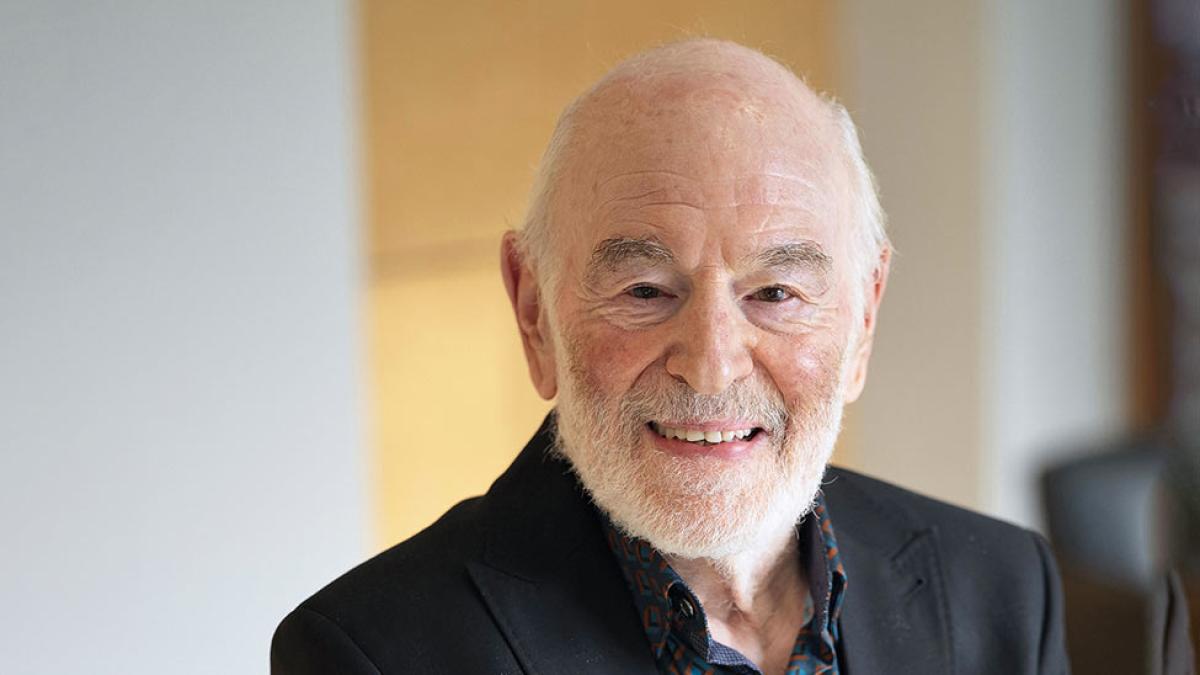
The American Family Isn't Collapsing, It's Adapting To Reality | Opinion
Dyson Professor Andrew Sciallo pens an op-ed in USA Today exploring how the American family isn’t collapsing—it’s evolving. He writes that today’s shifts in relationships, independence, and identity reflect adaptation to modern realities, even as older generations struggle with a version of the American dream no longer rooted in property or possessions.
Commentary: To Make Energy More Affordable, Double Down On Renewables
In his op-ed, “To Make Energy More Affordable, Double Down on Renewables,” published in the Times Union, Michael Hamersky, Executive Director of the Pace Energy and Climate Center, challenges the narrative that clean energy policies are responsible for rising energy costs. Drawing on decades of empirical data, Hamersky argues that renewable energy sources including wind, solar, and geothermal, offer long-term price stability and lower system-wide costs than continued reliance on fossil fuels. “The fossil fuel status quo created our current energy affordability crisis. If we continue to commit to that approach by subsidizing old power plants or building new pipelines, we will lock in a long-term obstacle to lower energy prices,” he writes.
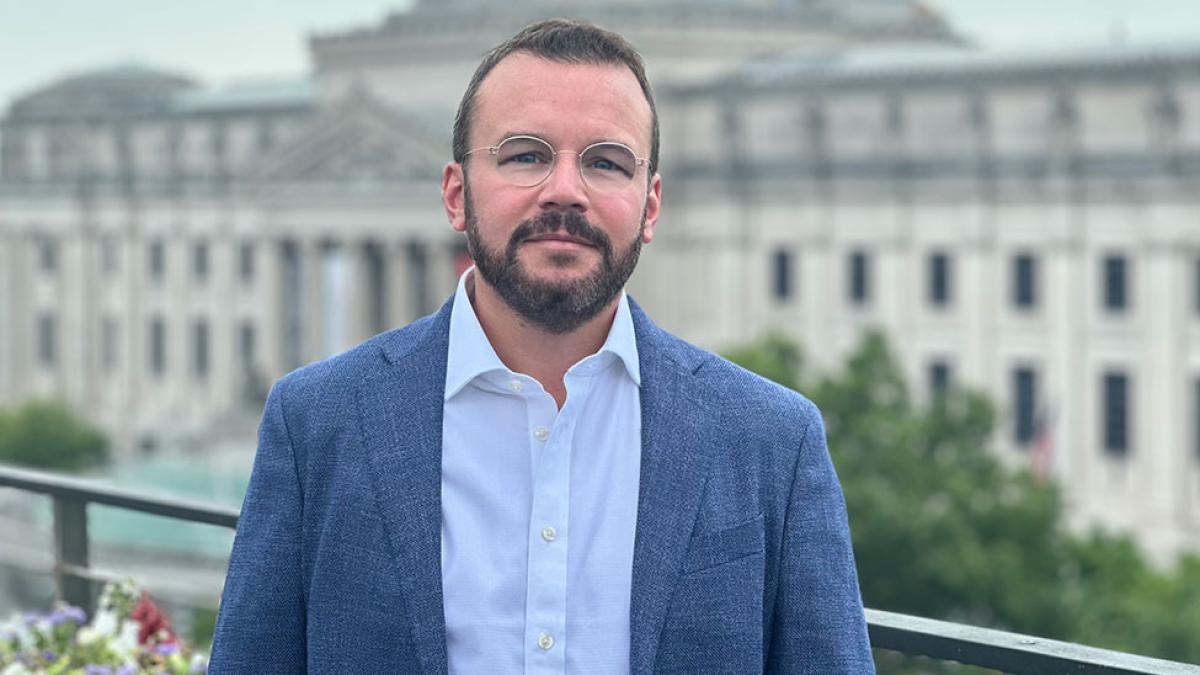
Top 7 Accounting Scholarships You Should Know About in 2026
Looking for scholarships to help pay for your accounting degree? Whether you’re a prospective undergraduate or graduate student, read our guide to discover scholarship opportunities for accounting majors and graduate students at Pace. You’ll get tips and advice on how to apply and how to boost your chances of acceptance.


Scholarships can make a substantial difference for accounting students, especially those preparing for the CPA. In this post, we’ll break down key scholarship options, including programs from national organizations, firms, and universities to help you find the support you need to succeed.
Why Scholarships Matter for Accounting Majors
Accounting degrees, and especially those targeting the Certified Public Accountant (CPA) exam, can get expensive quickly. With CPA licensure requiring either 120 or 150 credit hours in combination with professional experience, many students need a fifth year or a combined degree program to meet that threshold.
Scholarships help ease the financial load, so you can focus on what really matters: landing educational opportunities in the field, acing CPA prep, and building real-world experience instead of juggling part-time jobs.
They’re also a critical tool for promoting access to opportunities, as securing scholarship support early can be your ticket to coveted Big Four involvement and a stronger return on investment throughout your career.
Invest in Your Future: Scholarship Opportunities for Accounting Students
If you are considering an undergraduate or graduate degree in accounting, now is the time to take the next step toward a rewarding and respected career. Accounting offers stability, strong earning potential, and the opportunity to make a meaningful impact in business and society. To support students who are ready to pursue this path, a wide range of scholarships is available to help reduce financial barriers and accelerate your professional journey.
An accounting education prepares students for the Certified Public Accountant, or CPA, credential, one of the most respected professional licenses in business. The CPA designation opens doors to diverse and high-impact careers in public accounting, corporate finance, consulting, government, and financial services. While the path to becoming a CPA requires dedication and discipline, it consistently delivers long-term professional recognition, career mobility, and financial rewards.
The accounting profession is currently facing a nationwide talent shortage, with demand far exceeding supply across firms, corporations, government agencies, and financial institutions. In response, universities and the profession have expanded scholarship opportunities to attract and support talented students who are ready to lead. Early financial support allows you to focus on academic excellence, pursue competitive internships, including opportunities with Big Four firms, and fully engage in professional and leadership development. By exploring and applying for these scholarships, you not only reduce the cost of your education but also invest in a future with exceptional career prospects and lasting professional value.
Types of Scholarships Accounting Majors Can Apply
Before you dive into specific awards, it’s helpful to understand the major categories of scholarships for accounting majors. Here’s a quick overview of where support typically comes from and how each type can help you.
National Professional Organizations
Many national accounting organizations offer scholarships for students. These awards often require strong academic performance and membership of the applicant or one of their family members. Think of well-known scholarships from organizations such as the American Institute of CPAs (AICPA) or the Public Company Accounting Oversight Board (PCAOB).
Firm-Sponsored Awards
Big Four firms and other major accounting companies invest in future talent through scholarships. These often target students in their fifth year or in combined degree programs who are working toward CPA eligibility. Beyond financial support, these awards frequently come with internship or recruitment opportunities, providing a direct line to these renowned firms.
Professional Associations
Associations such as the National Association of Black Accountants (NABA) and the Association of Latino Professionals For America (ALPFA) offer scholarships focused on diversity, professional development, and networking. These groups aim to support underrepresented students and provide a connection to communities and networks that boost their career growth.
Scholarships Through Universities
Many universities offer scholarships specifically for accounting majors, especially those pursuing the 150 credit hours required for CPA licensure through combined degree or fifth-year programs. These scholarships may link directly to internship pipelines or firm partnerships, helping you build connections while you study.
Top Accounting Scholarships to Consider in 2026
Now that you know the types of scholarships available, let’s look at some specific opportunities. These awards can help you fund your degree, strengthen your CPA readiness, and build the professional connections that give you a career edge. Deadlines and amounts vary, so plan to give yourself the best shot at being named a recipient.
National Professional Organizations
- AICPA Foundation Scholarship for Future CPAs
- Amount: $5,000 to $10,000 per recipient
- Deadline: March 15, 2026
- Eligibility: Applicants must be U.S. citizens or legal permanent residents in good academic standing with a minimum 3.0 GPA (on a 4.0 scale). They must have completed at least 30 semester hours of college coursework, including six hours in accounting, by the end of the spring semester. AICPA Student Affiliate membership is also required (free to join).
- Benefits: Around 100 students are selected annually as AICPA Legacy Scholars, joining a connected community of aspiring accountants dedicated to advancing their education and careers
- Public Company Accounting Oversight Board (PCAOB) Scholars Program
- Amount: $15,000 per recipient
- Deadline: Funds are awarded for classes that start on or after August 1; deadlines are set by nominating institutions
- Eligibility: Students must be nominated by their school and enrolled in an undergrad or grad accounting program at a PCAOB-designated U.S. institution, starting classes on or after August 1 of the award year. They must have a 3.3 GPA or rank in the top third of their class, show strong ethics, demonstrate financial need, and not be a PCAOB employee or related to one. The award is merit-based, though the program encourages consideration of students from historically underrepresented groups in accounting.
- Benefits: Recognizes academic excellence and supports students committed to pursuing careers in public accounting.
Firm-Sponsored Awards
- Deloitte Foundation Accounting Scholars
- Amount: 100% of tuition and academic fees, excluding books and living expenses, if students maintain a 3.0 or higher GPA for all semesters and upon graduation.
- Deadline: April 1, 2026
- Eligibility: Eligibility requirements vary among the 25 participating schools. See the scholarship website for an exact breakdown.
- Benefits: Supports scholarships for students pursuing a five-year accelerated master’s in tax or accounting with a focus in audit, advisory, or tax.
- KPMG Fund for Excellence in Accounting
- Amount: $5,000 ($2,500 for the fall semester and $2,500 for the spring semester)
- Deadline: TBD for 2026
- Eligibility: Outstanding students who are enrolled in the Lubin School of Business in a qualified accounting program and who maintain a 3.30 GPA Overall and in Accounting at Pace University.
- Benefits: The Scholarship Fund for Excellence in Accounting Education is established by KPMG Partners and professionals to promote educational excellence in accounting at Pace University's Lubin School of Business' Department of Accountancy. Recipients must demonstrate involvement and leadership in either co-curricular activities at Pace or service organizations in their local community or high school.
- EY Accounting Scholarships at Pace
- Amount: $5,000 ($2,500 for the fall semester and $2,500 for the spring semester)
- Deadline: May, annually
- Eligibility: Open to Lubin School of Business accounting students with a 3.30 GPA or higher, these awards recognize those who show strong leadership and active involvement in campus activities, community service, or high school organizations.
- Benefits: The Ernst & Young Fund for Excellence in Accounting Education was established by Ernst & Young LLP to promote educational excellence in accounting at Pace University. Students may receive this award for no more than three academic years, provided they remain eligible according to scholarship stipulations.
Professional Associations
- National Association of Black Accountants (NABA) National Scholarships
- Amount: Up to $10,000
- Deadline: TBD for 2026
- Eligibility: NABA Foundation scholarships are open to applicants of all races who meet the eligibility criteria and are active members of the National Association of Black Accountants. They should be pursuing a bachelor’s or graduate degree in accounting, business, or finance.
- Benefits: For NABA student members earning an undergrad or grad degree in accounting or a related field.
- Association of Latino Professionals for America (ALPFA) Scholarships
- Amount: Up to $10,000
- Deadline: February 27, 2026
- Eligibility: Candidates of any race, ethnicity, or nationality are welcome to apply. Applicants must have a minimum GPA of 2.5 and an active Premium ALPFA National student or professional membership. Awards go to those with the highest scores from ALPFA judges.
- Benefits: The program supports students across various business and related fields, including international relations and HR, to economics, hospitality, and IT.
Scholarships Through Your University
Many universities offer scholarships that don’t always show up on national databases. These targeted awards are designed to support specific recruiting goals through partnerships with accounting firms. Here’s what you can expect from these university-affiliated scholarships:
- Support for students preparing for the crucial fifth year to meet CPA requirements
- Financial aid tailored to ease the cost of extended education
- On-campus access to exclusive internship pipelines and firm connections
- Awards that combine merit, financial need, and career readiness
Scholarships for Lubin Students at Pace University
Aside from the previously listed accounting scholarships, Pace University offers standout scholarship opportunities designed to help accounting students succeed, particularly those gearing up for their fifth year. The Lubin School of Business provides merit- and need-based awards to help alleviate the financial load.
- The Janetschek Professional Growth Fund provides financial support to qualified Lubin undergraduate and graduate students seeking business-related development beyond their academic programs. This may include skills training, credential preparation, certifications, and related co-curricular education and activities that develop professional competencies, complementing their program of study. The Janetschek Professional Growth Scholarship committee will review applications and award funds based on the requested amount.
- Graduation Awards for Lubin Undergraduate Students are available to Lubin undergraduate students who have filed for graduation with the Office of the Registrar and have a minimum 3.20 cumulative GPA. Qualifying students can be eligible for the Professional Management Award and the Alumni Association Award.
For graduate students, there is also the Deloitte Foundation Accounting Scholars Program, which provides up to ten full-tuition scholarships to qualified applicants pursuing a fifth-year master’s degree in accounting with a concentration in audit, advisory, or tax.
Pace’s combined BBA/MS, BBA/MBA, and BBA/Taxation programs make it easier to meet CPA requirements while gaining advanced credentials. Additionally, Pace’s location in NYC gives students a direct line to Big Four firms and other top players in the accounting world, opening doors to internships, networking, and career-launching opportunities.
Ready to learn more? Check out Pace’s accounting programs to see which educational opportunities fit your goals.
How to Find and Win Accounting Scholarships: Tips and Tools
Landing accounting scholarships takes strategy and preparation. Use these tips and tools to navigate the process and boost your chances of success.
- When to apply: It’s never too early to start. Aim for the fall or winter of the academic year to meet deadlines with time to spare.
- Where to search: Start with a general search, but don’t stop at scholarship aggregator sites. Be sure to visit the scholarship websites of national professional organizations, firm-sponsored awards, professional associations, and university partnerships for the latest information.
- What makes a strong application: Keep your GPA competitive, gather strong letters of recommendation, and write a personal statement that’s authentic and compelling.
- What to avoid: Don’t wait until the last minute, skip eligibility requirements, or submit generic essays that don’t showcase your unique background and goals.
Remember, accounting scholarships can be a game-changer. Pace is ready to help you find and win the right ones so you can focus on your career. Request information today and take the next step.
FAQ
-
Absolutely. There are plenty of scholarships specifically for accounting students at all levels. Whether you’re aiming for CPA prep, diversity initiatives, or firm-sponsored awards, there’s funding out there to help you get ahead.
-
Top picks usually come from national groups like AICPA and PCAOB, or firm-backed scholarships from the Big Four. Scholarships tied to CPA readiness or diversity programs are also highly competitive and valuable.
-
Yes. Many scholarships support grad students, especially those pursuing master’s degrees or specialized accounting tracks needed for CPA licensure. Look for awards that focus on advanced credentials and career growth.
-
Start early and use multiple resources. Check professional organizations, university scholarship portals, and trusted websites. Staying organized and tailoring your application to specific requirements makes a big difference.
-
You’ll need to be enrolled in an accounting program that’s CPA-qualifying, typically a bachelor’s degree or higher that meets your state’s 150-credit-hour requirement. Many CPA scholarships target students in combined or five-year programs designed for licensure prep.
CHP Welcomes Distinguished Speakers for Winter Graduation Celebrations
Pleasantville, NY — Pace University’s College of Health Professions (CHP) proudly welcomed two distinguished keynote speakers for its winter graduation recognition ceremonies in Pleasantville on December 18: Andrea Dalzell, RN, known nationally as The Seated Nurse, for the Accelerated Bachelor of Science in Nursing (ABS) Pinning Ceremony and esteemed scholar Michael Iwama, PhD, MSc, BScOT, for the Occupational Therapy (OT) program.
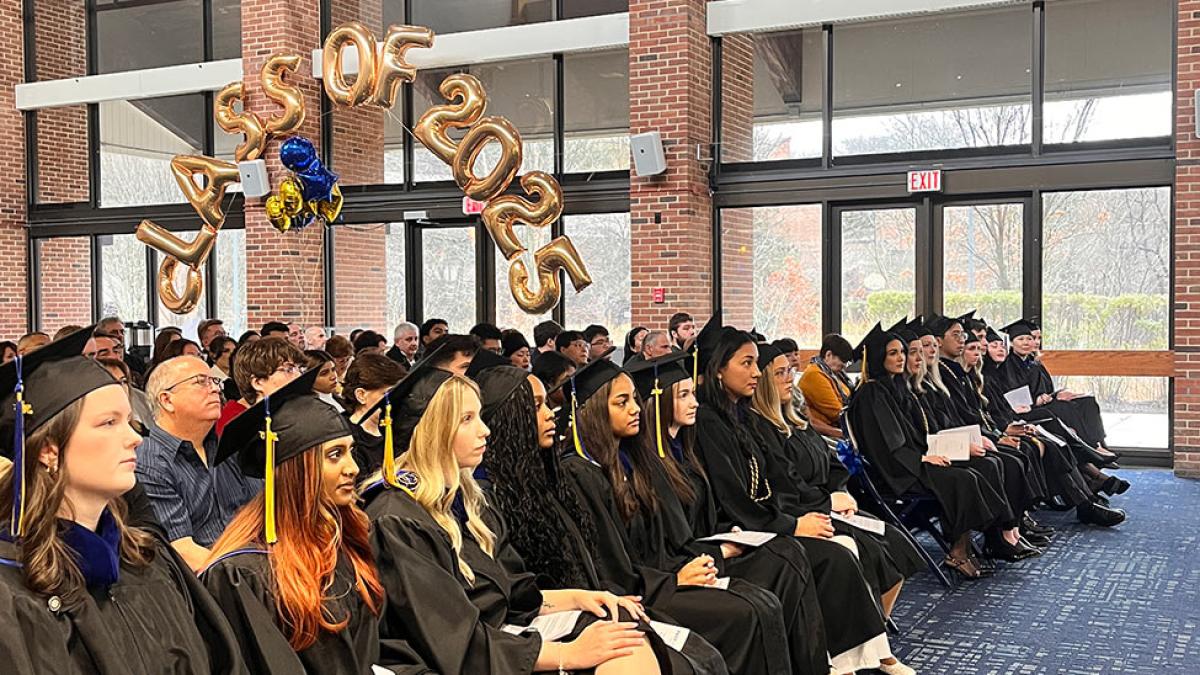
Pleasantville, NY — Pace University’s College of Health Professions (CHP) proudly welcomed two distinguished keynote speakers for its winter graduation recognition ceremonies in Pleasantville on December 18: Andrea Dalzell, RN, known nationally as The Seated Nurse, for the Accelerated Bachelor of Science in Nursing (ABS) Pinning Ceremony and esteemed scholar Michael Iwama, PhD, MSc, BScOT, for the Occupational Therapy (OT) program.
The ABS in Nursing – Pleasantville Pinning Ceremony featured Andrea Dalzell, RN, a disability rights advocate, nurse, and trailblazer who made history as the first wheelchair user to work as a registered nurse in a New York City hospital. Dalzell’s address centered on perseverance, inclusion, and the importance of dismantling bias in healthcare and education.
“Andrea Dalzell remarks reflected the collaborative support, hope, and perseverance modeled by the nurses who shaped her journey, as well as her own unwavering determination to succeed despite significant obstacles,” said Esma D. Paljevic, EdD, RN, the associate dean and chief nursing officer for CHP’s Lienhard School of Nursing (LSN).“By confronting and breaking through long-standing biased thinking, she made history as the first seated nurse in a New York metropolitan hospital. Her continued success in the profession stands as a powerful testament to resilience, inclusion, and what is possible when determination is met with support. I was honored to know that we at Pace Nursing were the first nursing school to invite her to our Pinning Ceremony. Andrea epitomizes the profession of nursing in her ability to inspire others through perseverance, mentorship, and a steadfast commitment to the values that define the profession.”
Dr. Dalzell’s message also closely aligned with the College’s broader efforts to advance equity and inclusion within nursing education, and her attendance was sponsored by the Josiah Macy Jr. Foundation grant that was awarded to CHP earlier this year.
“Andrea Dalzell’s address at the ABS Pinning Ceremony was a powerful affirmation of the work we are advancing through the Josiah Macy Jr. Foundation grant,” said LSN Assistant Professor Michele Lopez, DHEd, RN. “Her voice underscores the importance of inclusion, access, and belonging in nursing education and reinforces our commitment to preparing a diverse nursing workforce equipped to meet the needs of all communities. Through her lived experience and leadership, Andrea embodies the goals of the Josiah Macy Jr. Foundation—advancing inclusive excellence and ensuring that nursing education reflects the diversity of the patients we serve.”
Across campus, another celebration was underway. Dr. Michael Iwama is an internationally recognized scholar and the creator of the Kawa Model, a culturally responsive framework that has become foundational in OT education worldwide. Dr. Iwama’s presence marked a meaningful milestone for students and faculty alike, many of whom have studied his work since their first semester in the program.
“Having Dr. Iwama as a keynote speaker was a special moment for the OT department, as he is a leading figure in the field. Our students have been learning about his innovative Kawa Model since the very first semester of classes… and many seem to resonate deeply with it. Getting to hear him speak in-person was a truly ‘full-circle’ moment for the students and faculty alike,” said John Damiao, PhD, chair, Department of Occupational Therapy
Together, these ceremonies highlighted Pace University’s commitment to academic excellence, inclusive leadership, and preparing future health professionals who are both skilled and deeply attuned to the diverse communities they will serve.
Media Experts
In Memoriam: Kristina Maria Gjerde, 2024 Laureate of the Elisabeth Haub Award for Environmental Law at Diplomacy
Elisabeth Haub School of Law deeply mourns the death of Kristina Maria Gjerde, who passed away from pancreatic cancer on December 26, 2025.
Kristina was a 2024 Laureate of the Elisabeth Haub Award for Environmental Law and Diplomacy, presented jointly to her and Singapore Ambassador Rena Lee in recognition of their leadership in advancing the United Nations Agreement on Biodiversity Beyond National Jurisdiction (BBNJ)—a landmark achievement in the protection of marine biodiversity on the high seas.
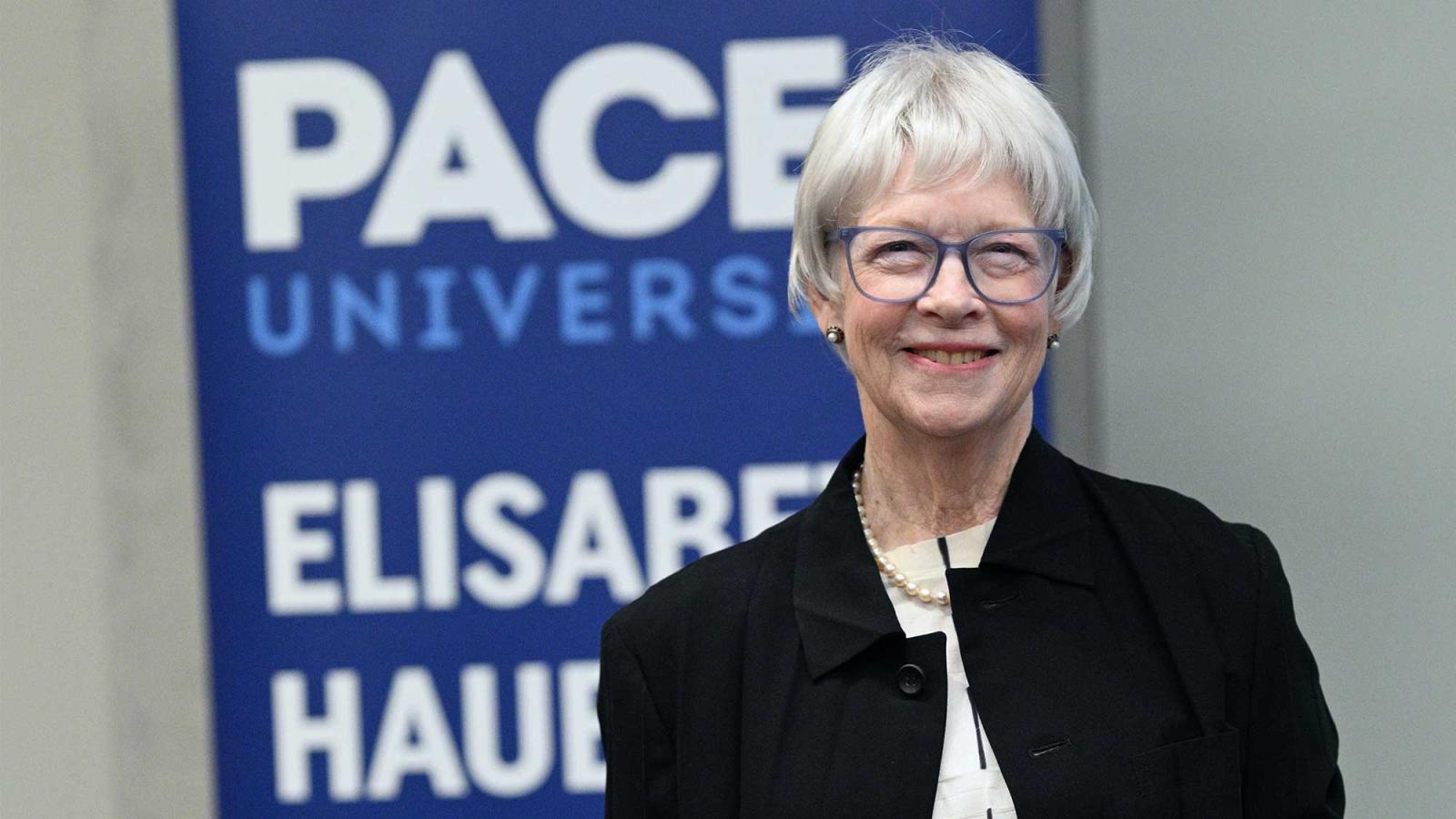
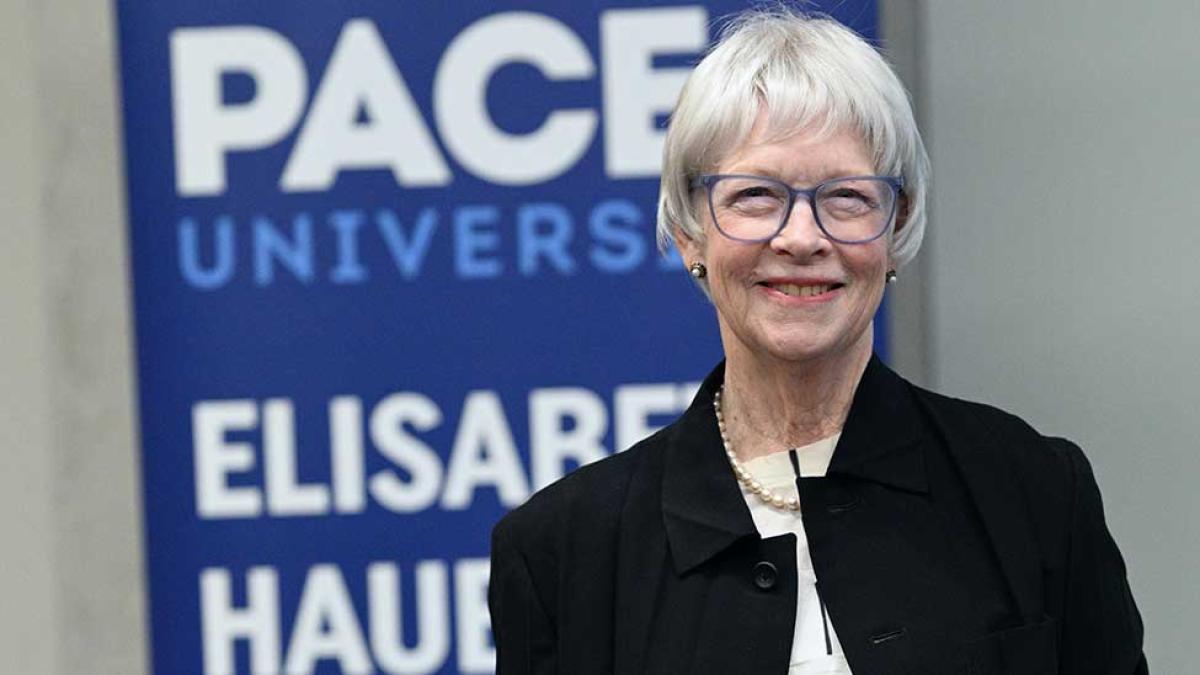
Elisabeth Haub School of Law deeply mourns the death of Kristina Maria Gjerde, who passed away from pancreatic cancer on December 26, 2025.
Kristina was a 2024 Laureate of the Elisabeth Haub Award for Environmental Law and Diplomacy, presented jointly to her and Singapore Ambassador Rena Lee in recognition of their leadership in advancing the United Nations Agreement on Biodiversity Beyond National Jurisdiction (BBNJ)—a landmark achievement in the protection of marine biodiversity on the high seas.
A true champion for the ocean, Kristina dedicated nearly 40 years to the development of public international law governing the marine environment. Her expertise encompassed ocean governance, shipping, fishing, and deep seabed mining, driven by a passion for advancing the role of science and scientists to improve marine biodiversity conservation and sustainable use. Kristina’s visionary work through IUCN as the Senior High Seas Advisor in conceptualizing the need for and incorporating innovative conservation measures for the BBNJ Agreement in the early 2000s. She also led the establishment of several key initiatives, including the Deep Ocean Stewardship Initiative, the Global Ocean Biodiversity Initiative, the Sargasso Sea Project, and the High Seas Alliance. She also served on the Executive Planning Group of the UN Decade of Ocean Science. In addition to Kristina’s role with IUCN, she was an adjunct professor at the Middlebury Institute of International Studies, an Honorary Professor at the University of Edinburgh, a Pew Marine Fellow and formerly a Woods Hole Oceanographic Institution Marine Policy Center Fellow. Kristina sat on the Schmidt Ocean Institute Advisory Board and has co-authored over 200 publications, collaborating with leading ocean scientists and legal scholars with a focus on marine biodiversity conservation and sustainable use in ABNJ. Her efforts have significantly contributed to the progressive development of marine law and policy, exemplified by her vital role in catalyzing early support for the BBNJ Agreement.
Her commitment for uplifting early career scholars has enabled new voices from around the world to shape the process. Kristina is a multi-award recipient, including the 2023 IUCN World Commission on Protected Area’s Fred Packard Award for her efforts to secure protections in international law for the high seas and the 2024 Elisabeth Haub Award for Environmental Law and Diplomacy, the world’s most prestigious award in the field of environmental law.
To continue her long-term commitment to fostering the next generation of ocean stewards, Kristina has established the Ocean Stewardship Award through Synchronicity Earth, USA. Her love of the ocean and her legacy will live on through the BBNJ Agreement, which will enter into force on 17 January 2026.
Elisabeth Haub School of Law at Pace University Professor Achinthi Vithanage Recognized with 2025 Ottinger Award for Faculty Achievement
The Elisabeth Haub School of Law at Pace University is proud to announce that the 2025 Ottinger Award for Faculty Achievement has been awarded to Achinthi Vithanage, Professor of Law for Designated Service in Environmental Law & Executive Director of Environmental Law Programs. The Richard Ottinger Faculty Achievement Award is awarded annually by the Faculty Development Committee, in consultation with the Dean, in recognition of a full-time professor’s outstanding service to the law school, the legal profession, or both. The award generally is based on the faculty member’s outstanding service during the previous academic year.
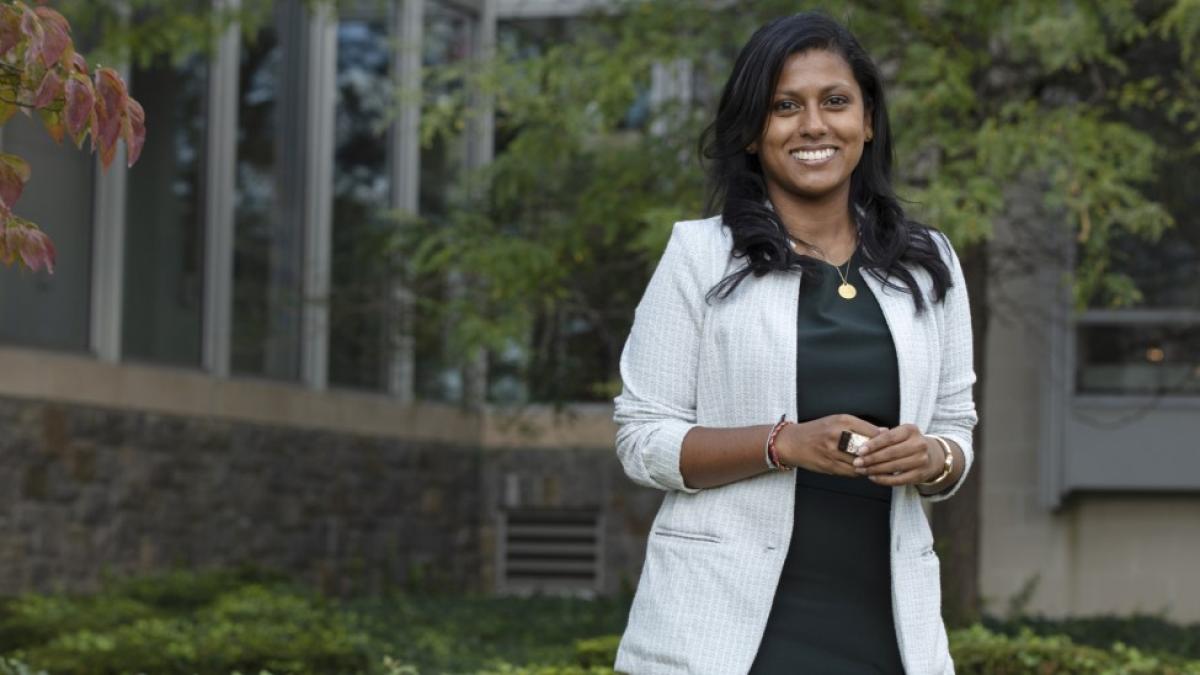

The Elisabeth Haub School of Law at Pace University is proud to announce that the 2025 Ottinger Award for Faculty Achievement has been awarded to Achinthi Vithanage, Professor of Law for Designated Service in Environmental Law & Executive Director of Environmental Law Programs. The Richard Ottinger Faculty Achievement Award is awarded annually by the Faculty Development Committee, in consultation with the Dean, in recognition of a full-time professor’s outstanding service to the law school, the legal profession, or both. The award generally is based on the faculty member’s outstanding service during the previous academic year.
Professor Katrina Fischer Kuh, chair of the Faculty Development Committee, remarked: “Achinthi Vithanage is a recognized and respected leader in the field of environmental law, both nationally and internationally. Her work with the IUCN and the ABA Section on Energy & Environmental Law (SEER) has been inspirational and effective and through this she continuously strives to identify and create substantive opportunities for students to gain meaningful experience. Achinthi is a role model not just to our students and faculty at Pace Haub Law, but more broadly throughout the field and academic community. We are proud to honor her and her service with this recognition in the form of the Ottinger Award for Faculty Achievement.”
For Harrison Bench ’27, a student in the JD/MEM dual degree program with Yale School of the Environment, Professor Vithanage’s guidance has been transformative: “Professor Vithanage is not only an ardent and knowledgeable instructor, but also a dedicated mentor to and advocate for her students. She helped me secure two separate legal internships, introduced me to ABA SEER’s Environmental Law Society Network, and allowed me to take her Advanced International Environmental Law seminar so that I could participate in the upcoming IUCN World Conservation Congress. Her commitment to networking, real-world opportunities, and experiential learning makes Professor Vithanage an invaluable member of the Pace Haub Law faculty and Environmental Law Program.” Harrison is a student co-chair of ABA SEER Environmental Law Society Network and a Symposium Editor for Pace Environmental Law Review.
Professor Vithanage is recognized as one of the country’s leading environmental and energy lawyers with listings in LawDragon’s inaugural Environmental and Energy Lawyers list in 2021 and in LawDragon’s 500 Leading Environmental Lawyers Guides for 2023, 2024, and 2025. Within the American Bar Association’s Section on Environment Energy & Resources (SEER) she serves on its Governing Council (2023–2025), heads the Law Student Transition Task Force and is a member of the Sustainability in Legal Education Task Force, is the founding Co-Chair of the Environmental Law Society Network, and a former Co-Chair of the International Law Committee. She serves on the Secretariat to the International Union for Conservation of Nature’s (IUCN) Academy of Environmental Law, co-leads the Climate Change Collaborative Research Network for the Law & Society Association, is a member of the World Commission on Environmental Law, and an originating member of the International Association of Energy Law, a global network of early career energy law professors. Most recently, she attended COP30 and COP28 as the ABA Delegate and serves on several Boards, including the Editorial Advisory Board for the Environmental Law Institute’s Environmental Forum publication, the Editorial Board for Yearbook of International Environmental Law, the Board of Directors of the Federated Conservationists of Westchester County, and the Sustainable Business Law Hub’s Advisory Board.
Prior to joining Pace Haub Law, Professor Vithanage was a Visiting Associate Professor of Law at the George Washington University Law School (GW Law). Professor Vithanage was born in Sri Lanka, lived in the United Arab Emirates, practiced as an attorney in the state of New South Wales (NSW) in Australia, and undertook tertiary studies in Australia, Japan, China, Spain, and the United States, providing her a unique international perspective. She also worked at the Energy & Water Ombudsman of NSW and practiced in the corporate, commercial, and property legal sectors in Sydney, Australia.
The Ottinger Award for Faculty Achievement is named in honor of Richard L. Ottinger, who served in the United States House of Representatives for eight terms, from 1965 to 1971 and from 1975 to 1985. Ottinger was Dean of the Law School from 1994 to 1999 and is the founder of the Pace Energy Project, now known as the Pace Energy and Climate Center. Learn more about the Richard Ottinger Faculty Achievement Award and other faculty designations and awards.
Skyler Pozo ’26: Gaining Her Edge Through Trial Advocacy
As a child, Skyler Pozo ’26 was captivated by courtroom television, often watching alongside her mother. That early fascination stayed with her and eventually evolved into a serious interest in the law and advocacy. “Once I got to college, I joined the Mock Trial Team at Scranton,” Skyler shared. “I ultimately became captain of the team, won awards, and was the first person in Scranton history to receive an award at the Opening Round Championships.”
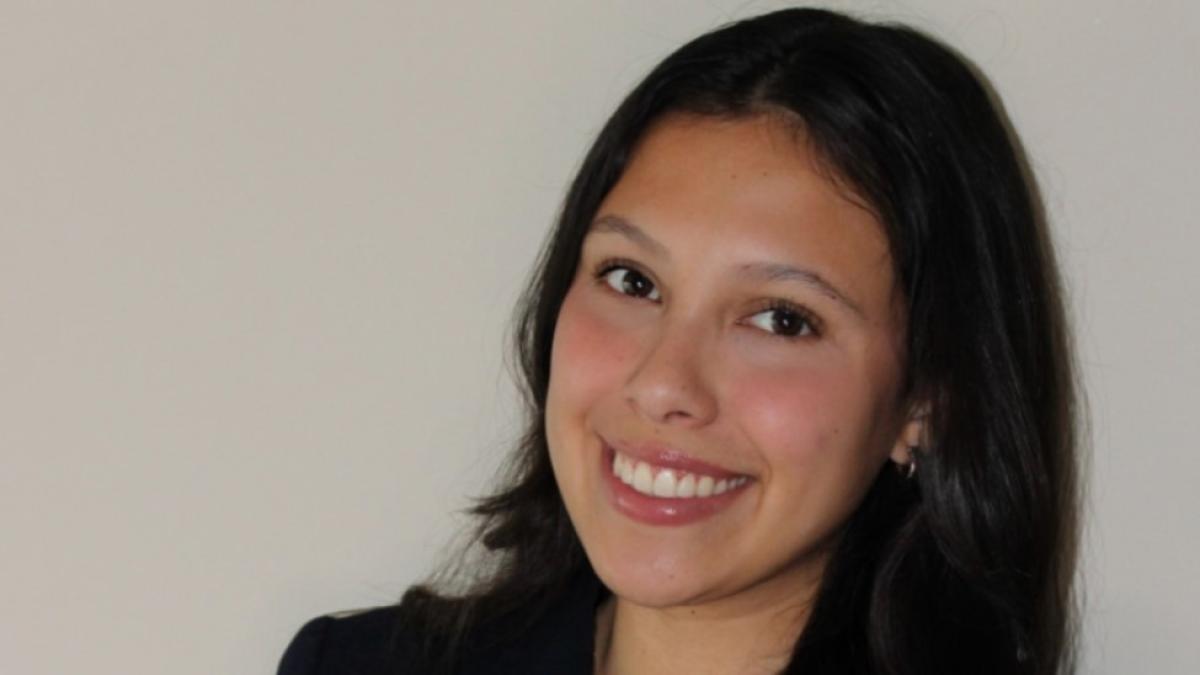
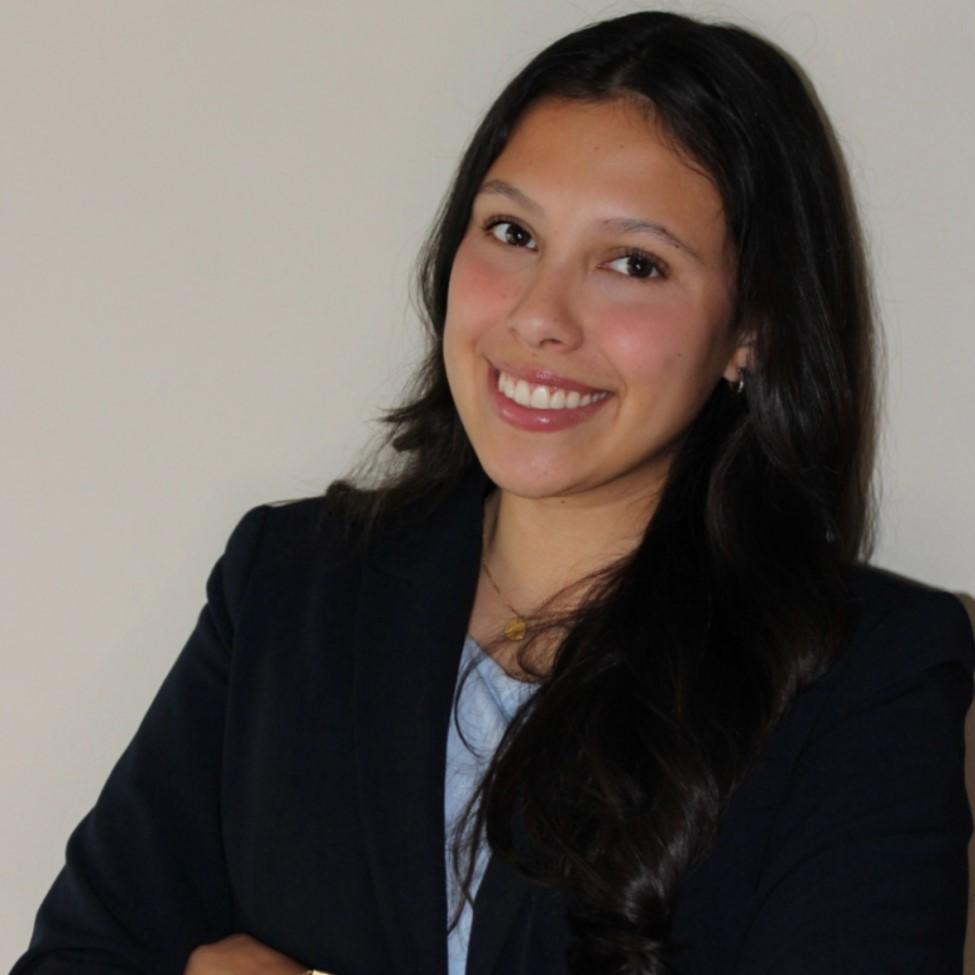
As a child, Skyler Pozo ’26 was captivated by courtroom television, often watching alongside her mother. That early fascination stayed with her and eventually evolved into a serious interest in the law and advocacy. “Once I got to college, I joined the Mock Trial Team at Scranton,” Skyler shared. “I ultimately became captain of the team, won awards, and was the first person in Scranton history to receive an award at the Opening Round Championships.”
Just two months after graduating from the University of Scranton, Skyler began her legal education at the Elisabeth Haub School of Law at Pace University. From the outset, she found a supportive and encouraging community. “Since day one, the Pace Haub Law community has been extremely supportive,” she said. “I distinctly remember the bailiff in my 1L moot oral argument round coming up to me and telling me what an asset I could be to the Trial Advocacy Program. That moment was life-changing. I not only gained a lifelong friend, but also found my place in the Trial Advocacy Program, an experience that will stay with me forever.” Through her involvement in the program, Skyler gained invaluable hands-on experience, built lasting relationships, and expanded her professional network. Skyler also serves as Chair Executive Director of Advocacy and Teacher's Assistant for Trial Advocacy.
Skyler’s time at Pace Haub Law has been shaped by extensive experiential learning opportunities. “The opportunities to gain a variety of experience are endless,” she noted. During her 1L summer, she interned with the Passaic County Prosecutor’s Office in New Jersey, working in the Fatal Investigations Unit. Her 2L summer took her to Harris Keenan & Goldfarb in New York City, followed by a Family Court Legal Program externship during her 3L fall semester, where she traveled to Westchester County courthouses and interned with the Pace Women’s Justice Center.
My goal has always been to be in court, and I am eternally grateful for Pace Haub Law and the Trial Advocacy Program for helping me reach this milestone.
—Skyler Pozo '26
After graduation, Skyler will return to Harris Keenan & Goldfarb as an associate (pending admission), achieving her long-standing goal of working in the courtroom. “My goal has always been to be in court, and I am eternally grateful for Pace Haub Law and the Trial Advocacy Program for helping me reach this milestone,” she said.
Reflecting on her journey, Skyler encourages current and future law students to stay grounded in their purpose. “Always remember what led you to this path in the first place,” she advised. “Law school is incredibly difficult, but remember that you are here because you deserve it. Take advantage of all the practical experiences Pace Haub Law has to offer, and of course, join the Trial Advocacy Program.”